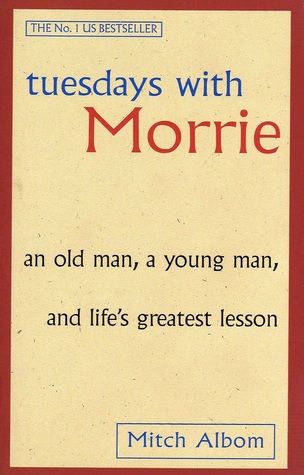Morrie Schwartz on Being Young Again
'Tuesdays With Morrie' shares life'south greatest lesson
Every Tuesday, Morrie Schwartz, a sociology professor and passionate dancer, teaches his final class about The Pregnant of Life. Yet, this was not an ordinary class. Instead of relying on textbooks, the subject was taught from experience. Although grades were not given, the curriculum revolved effectually socializing and being a parental figure for Schwartz until his funeral was held in lieu of graduation. This class had only ane educatee: Mitch Albom. Albom, who graduated from Brandeis University in the city of Waltham, Massachusetts a couple of decades prior to Schwartz's final class, felt guilty for not keeping his hope to stay in bear on with his favorite professor. Encumbered by the deaths of family unit members and the harsh reality of life, Albom decides to reconnect with his sometime professor twenty-years subsequently graduation to talk over life and death. Despite the long-awaited reunion, Schwartz, whose "eyes were more than sunken … cheekbones more pronounced … and the sagging cheeks gathered upwardly like curtains," welcomed Albom with open artillery and smiled "as if you'd just told him the get-go joke on globe." Schwartz reveals that he has amyotrophic lateral sclerosis, or Lou Gehrig'south disease, an unforgiving illness of the neurological organization which had no known cure. Albom describes ALS and its result on Schwartz'southward body as "a lit candle: information technology melts your nerves and leaves your body a pile of wax." Even though his death was imminent with each passing day, Schwartz decided to teach one concluding class to enlighten his pupil, Albom, with life's greatest lesson. " Tuesdays With Morrie " is a candid and profound book, with each page effulgent with the warmth of unembarrassed honey betwixt a young man and his old mentor. Reading the book made me feel similar I was also a student in Schwartz's final class. I have gained a new perspective on multiple topics in life, including honey, family, forgiveness, culture, the fear of aging, and, most importantly, death. I also found humor from Schwartz'southward frankness, gained a deeper appreciation for my mentors, and felt heartbroken every bit Schwartz'south health conditions worsened and approached death's door. Out of Schwartz'south other loving thoughts essential to his teachings, my favorite aphorism is: "giving is living." Like Schwartz, I feel truly alive when I give to others. I also feel guilty when I take more from others, albeit Schwartz exaggerates that taking from others makes him experience like dying. Furthermore, in the book's afterword to celebrate the 20th Ceremony of " Tuesdays With Morrie ," Albom emphasizes that the adage, "giving is living," is more than simply a maxim. Information technology was "[Schwartz's] philosophy, his raison d'être, maybe even his secret." The book was as well reminiscing about my favorite instructor in centre school. Similar Albom, I was a raw, precious jewel who had the potential to be polished into a proud polish through the eyes of my teacher. My teacher's view of me every bit a gem juxtaposes my personal view of a "living corpse." She encouraged me to view the world on a positive note and overcome my obstacles in life, including my timidness and pessimistic attitude. In fact, Albom's description of Schwartz as a candle is accurate with my teacher's appearance–they are both old and had pale, saggy skin. Had she not died from a heart attack during the summer of eighth course, my instructor would accept wanted to share the same relationship equally Albom and Schwartz. Therefore, I tin chronicle to Albom and sympathise the guilt he felt when his hope to reconnect with his sometime professor was overdue. The only exception was that Albom was fortunate to get a 2d risk, even if information technology was during Schwartz's last months, while I only had i opportunity with a very limited time menstruum and missed information technology. Overall, I recommend this book to people who have wished they had a 2d chance to reunite with their mentors and receive wisdom for their busy lives. Schwartz's ultimate lesson to cooperate with ane another with love and pity has genuinely touched my heart, and I aspire to be compassionate for others and expose their potential just equally my instructor had done for me. " Tuesdays With Morrie " is a sincere and gentle tribute to Schwartz and his invaluable teachings, through which Albom writes a final thesis to share his professor'south departing gift with the world.  The statement, "Decease ends a life, not a human relationship," is ane of many aphorisms passed down from an onetime, patient, and wise mentor to his young educatee.
The statement, "Decease ends a life, not a human relationship," is ane of many aphorisms passed down from an onetime, patient, and wise mentor to his young educatee.
Source: https://mhspinion.com/opinion/2022/01/17/tuesdays-with-morrie-shares-lifes-greatest-lesson/
0 Response to "Morrie Schwartz on Being Young Again"
Post a Comment